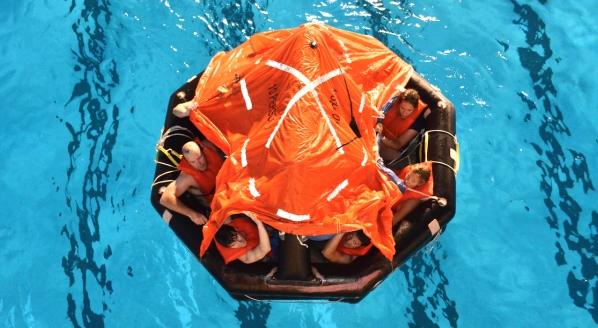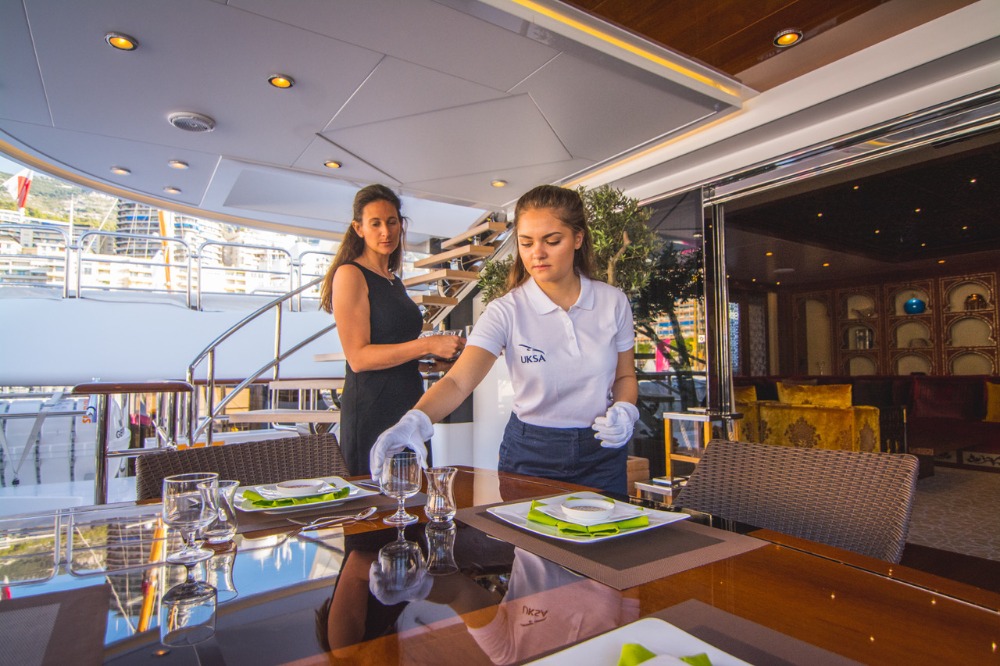Creating pathways for prospective crew
Can the superyacht industry improve recruitment strategies to address the shortage of quality crew?
As more yachts hit the water, and the average size of these vessels increases, there’s a growing worry that there will not be enough quality crew to go around. “Because of a shortage of crew, [the industry] has to tap into new and relatively inexperienced crew on a daily basis, which is a high risk for us as managers for many reasons,” said Gunther Alvarado, head of yacht management and marine operation at Al Seer Marine, during a panel discussion at The Superyacht Forum 2019. “I think we need to work as an industry to actually prepare these people better as to what working on a superyacht actually involves. You need to be trained not only for the skills, but [also] for the lifestyle.”
John Wyborn, co-founder and director of yacht brokerage and charter management company Bluewater, shares these concerns about the industry’s induction of new crew. “The industry employs a huge number of people at sea and a huge amount of money is involved in the sector, yet we have no structured pathway to bring young people in,” he added, also speaking on the panel. “We are picking people up from the jetty and making sure they have STCW training, which is the minimum, but we are not actually training anyone to come and work for us. This means we have a large quantity of ‘lifestyle tourists’ and I think the time has come where we have to change the way crew are recruited.”
There are already changes afoot in terms of structured pathways and some training centres have set up pipelines of candidates coming into the industry with the required skills and prospects. For example, the Isle of Wight-based training school UKSA has announced the launch of a fully funded foundation course for young people who have just finished their GCSE exams and are looking to start a career in the maritime industry. The Maritime Foundation courses will equip students with skills and qualifications that demonstrate their competency to work as seafarers in entry-level positions.
The course is funded by the UK government as part of a full-time 16-plus further education programme and it complements, and can lead into, the UKSA’s well-established Superyacht Cadetship – a structured four-year programme designed in consultation with the MCA to train students to become yacht officers, giving graduates a strong foundation of knowledge and a realistic understanding of the industry.
Such initiatives are helpful to attract young people who might not otherwise be able to enter the industry, which usually involves substantial personal investment upfront...
Such initiatives are helpful to attract young people who might not otherwise be able to enter the industry, which usually involves substantial personal investment upfront. Furthermore, aiming at 16- to 18-year-olds – an age range often neglected by professional qualifications – will ensure candidates get a head start and gain relevant experience instead of having to tread water for two years doing more conventional academic courses.
Most importantly, cadetship and apprenticeship schemes increase the number of candidates with long-term career prospects by providing superyacht-specific preparation, training and support. “Effective training, mentorship and guidance from experienced industry professionals cannot be beaten in terms of the mix it provides to students when entering the world of superyachts. This applies to both interior and deck crew training with us,” says Chris Frisby, director of training and operations at UKSA. “We work closely with our students throughout their training and career pathway to ensure they achieve their potential and are best prepared for such a unique industry.”
These cadetships have proved to be effective in attracting professionally-trained, career-minded candidates on to superyachts. However, unlike the merchant sector, current superyacht cadetship courses are not supported financially by the industry that they seek to serve.
In an expanding industry, with statistics clearly demonstrating the need for more experienced and skilled crew, there should be an active initiative to contribute towards attracting and supporting young people to meet this shortfall. The industry also has to seriously consider younger crew who are committing to a career path with significant time on board rather than smart graduates who want a couple of years in yachting before starting a ‘real’ career.
There also needs to be a shift in mindset towards recruiting crew from outside the industry. “Some yachts are more lenient in accepting candidates with transferable skills, such as Michelin-star hospitality or cruise-ship experience, but many won’t accept crew without a minimum number of years’ or seasons’ experience in the industry, and this is non-negotiable,” says Chloe McFarnell, yacht placement consultant at Viking Crew. “I think the industry could get some very good candidates if yachts were a bit more open-minded in this respect.”
The industry seems to be guilty of expecting new crew to turn up each year and doesn’t fully realise the necessity of supporting them from the very start. It’s evident that the way the industry recruits needs to evolve to continue to attract new talent. While there will always be a need for transient crew to some extent, the industry should be looking to attract more professional and career-minded crew into yachting – to professionalise the industry and, consequently, enhance the on-board experience.
Image credit: UKSA
Profile links
NEW: Sign up for SuperyachtNewsweek!
Get the latest weekly news, in-depth reports, intelligence, and strategic insights, delivered directly from The Superyacht Group's editors and market analysts.
Stay at the forefront of the superyacht industry with SuperyachtNewsweek
Click here to become part of The Superyacht Group community, and join us in our mission to make this industry accessible to all, and prosperous for the long-term. We are offering access to the superyacht industry’s most comprehensive and longstanding archive of business-critical information, as well as a comprehensive, real-time superyacht fleet database, for just £10 per month, because we are One Industry with One Mission. Sign up here.
Related news

Regulating mental health
How is the superyacht industry paying more attention to the health and wellbeing of seafarers?
Crew

Sizeable donation unlocks ambitious plans for UKSA
The pledge of $1.9 million will enable the training centre to improve its accommodation facilities
Crew

The next generation of superyacht crew
During TSF, an interactive workshop considered who would operate the next generation of superyachts
Crew

Issues of longevity and proficiency
As the market professionalises, so too must superyacht crew
Crew

Crew welfare issues
Crew were surveyed about welfare issues, identifying key areas where the industry could improve crew well-being
Crew
Related news
Regulating mental health
6 years ago
The next generation of superyacht crew
6 years ago
Issues of longevity and proficiency
6 years ago
Crew welfare issues
6 years ago
NEW: Sign up for
SuperyachtNewsweek!
Get the latest weekly news, in-depth reports, intelligence, and strategic insights, delivered directly from The Superyacht Group's editors and market analysts.
Stay at the forefront of the superyacht industry with SuperyachtNewsweek




